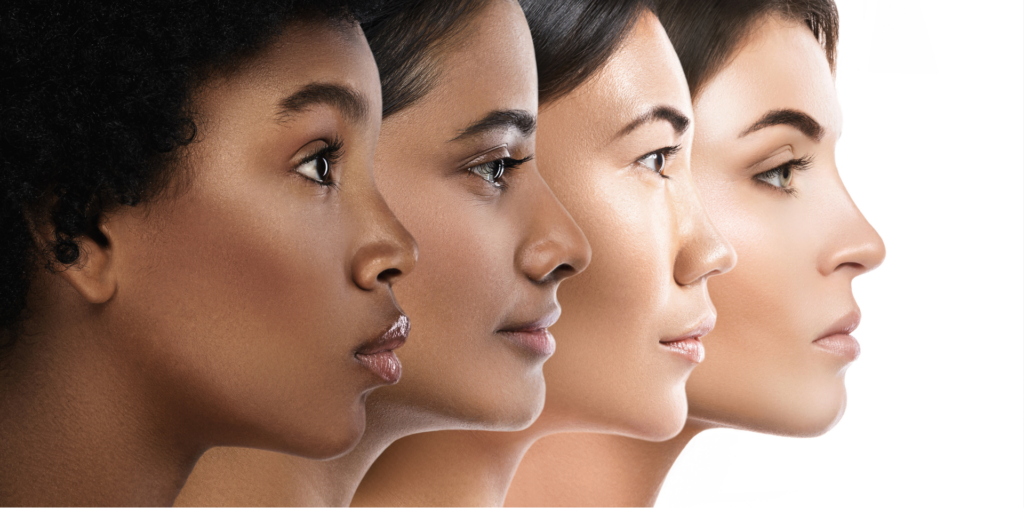The Skin of Color Society Provides Unique Training

Initially founded in 2004, The Skin of Color Society was established to build awareness about dermatology and skin color. Those identified as people with skin of color are African, Asian, Hispanic, Native American, Pacific Islanders, and any combination. The Skin of Color Society aims to educate medical providers and the public about health issues common to darker skin tones. Scientists and researchers continue to look into the lives of those impacted by skincare concerns with skin color. Incredible partnerships and community involvement serve all people with skin of color.
Skin of Color Dermatologists Support a Noble Purpose
The association and commitment of the Skin of Color Society to educate and achieve equally excellent patient care among those individuals with skin of color are commendable. Practicing dermatology requires intense training and experience, but those dedicated to learning about skin of color have their heart in helping provide a diverse and inclusive branch of medicine to everyone. Dr. Sherrie Straughn is one such dermatologist. Working in the Atlanta area for more than twenty years, Dr. Straughn is dedicated to helping all clients achieve their optimal skin health but has committed to helping those with skin of color achieve the same radiance and health as others.
Common Skincare Concerns for Individuals with Darker Skin Tones
There are several skincare conditions that seem to be more prominent in those with darker skin tones. Treatment and care should be done by a dermatologist with experience and training specifically for clients with skin of color.
Pigmentation Skincare Concerns
Uneven pigmentation is the top concern that brings people to seek professional help from a dermatologist. The skin’s melanin levels are higher in those with skin of color, and overproduction due to an injury or infection can leave skin looking spotty. Many factors are attributed to uneven skin appearance, including exposure to the sun, pregnancy, and acne scars.
Hyperpigmentation is also more noticeable in darker skin tones, and many people want to address this skincare concern and go to a licensed dermatologist to do so. A Skin of Color Society dermatologist understands that those with skin of color can’t use treatments or products that will bleach the skin. The pigmentation of black skin is unique and should be treated by someone with experience and training.
Dark Eye Circles
Dark circles under the eyes are not just from being tired. As we age, the skin under the eye thins out and becomes more fragile. Lifestyle choices can help this condition, but treatments are typically under eye creams and the use of concealers. Again, those individuals with skin of color are challenged with products and concealers and should use them under guidance from a professional dermatologist with experience in this area.
Dermatosis Papulosa Nigra
Many with darker skin tones experience small black bumps on the neck and face. This skin condition is called Dermatosis Papulosa Nigra, or DPN. These small bumps appear similar to moles or freckles raised on the skin. These small bumps typically appear on the face and neck. Unusual in children and young adults, this skin condition occurs in the thirties and forties for most patients and may continue to develop through the later years. It is critical to work with a dermatologist if this is an area of concern for you. Since the small black bumps are not a health concern, the treatments done in the office of a reputable dermatologist would be removal, which is entirely safe.
Shiny and Oily Skin
Although people of all skin colors suffer from oily skin, the shine may be more evident in those with darker skin tones. Often, over oily skin is a result of over-cleansing and dehydration. Harsh soaps and cleaners leave the skin dry, and it begins to produce extra oils. Many times, using a gentler cleanser and staying away from oil-based concealers can have a significant impact on the skin’s appearance. When in doubt, ask a dermatologist. People may think they have dry or oily skin, but a simple change of products and routine can bring the skin back to its optimal health.
Undeniably, the Skin of Color Society has made strides in educating medical professionals and skincare specialists on treating and caring for clients with skin of color. The dedication of the professionals who train and become active members of this community provides better care for their patients. Every single person should have access to healthy skin and early skin cancer detection. Buckhead Dermatology has a skin-cancer screening program that has helped many clients in the Atlanta area. If you are considering visiting a dermatologist for any skincare concerns, please call for an appointment with the professional and caring, Dr. Straughn.
